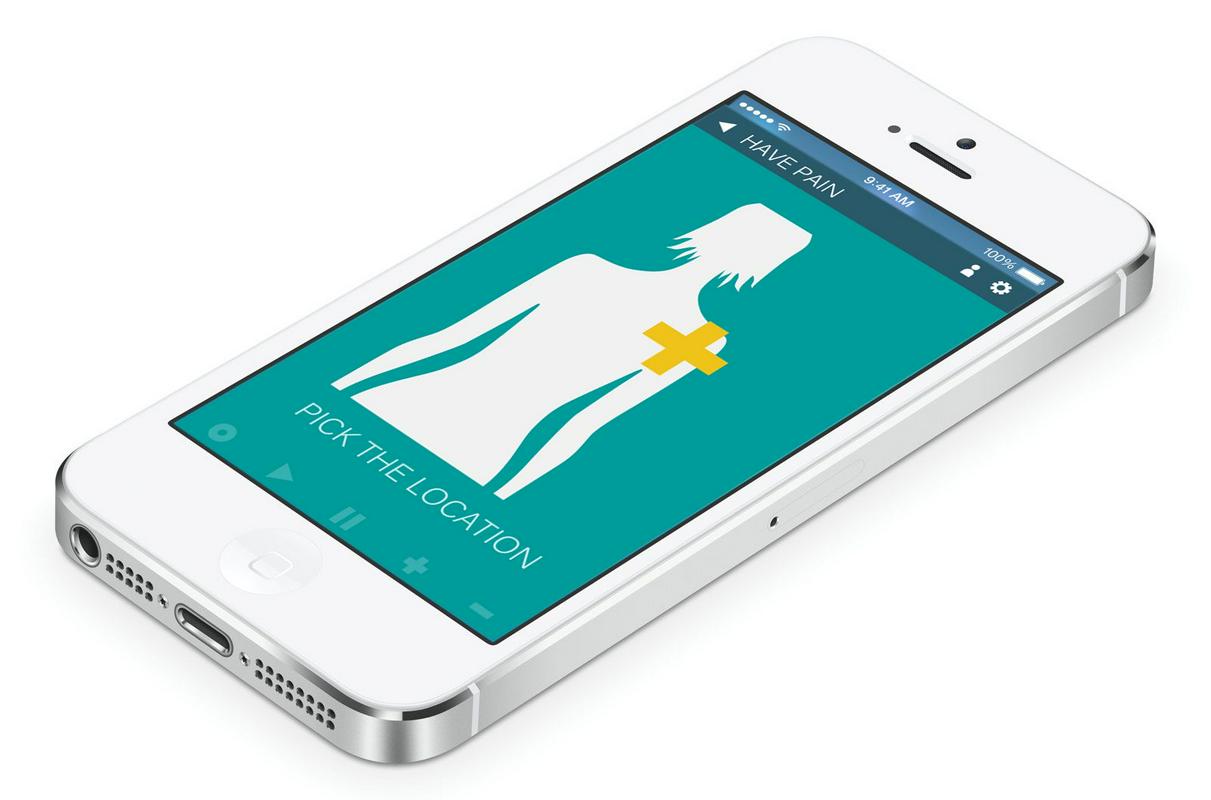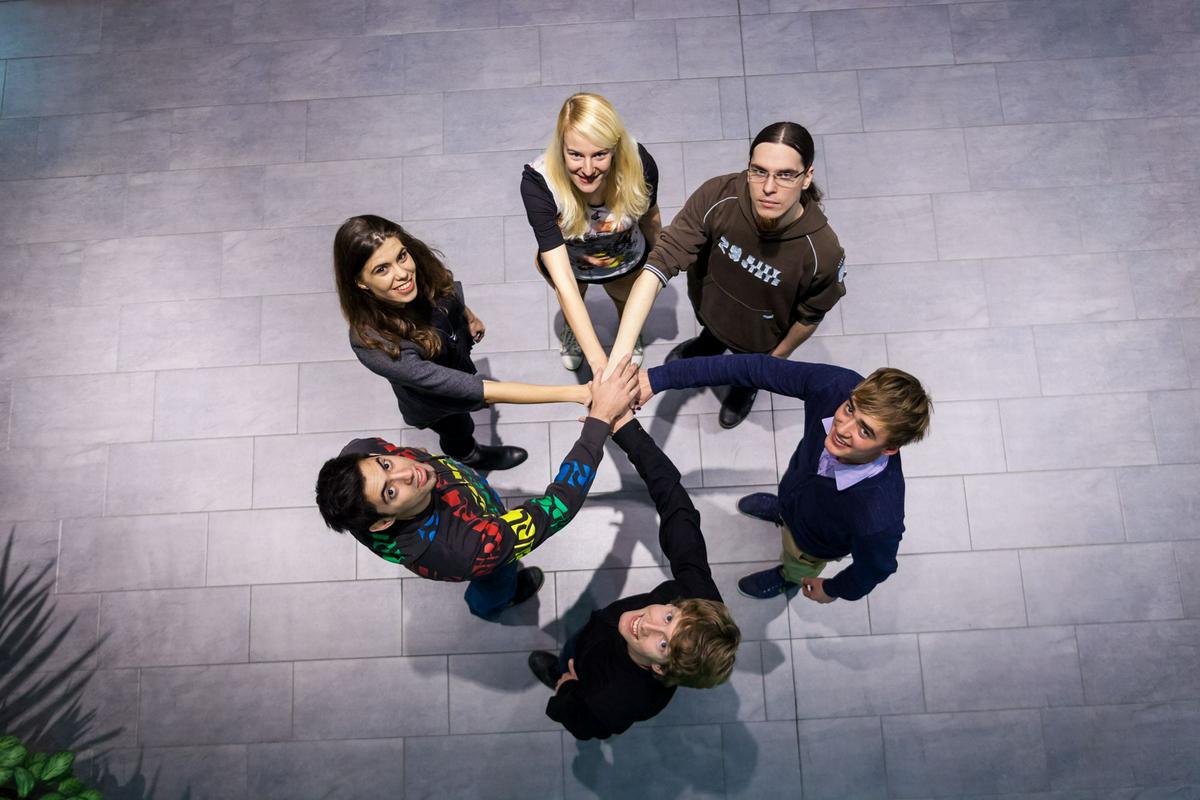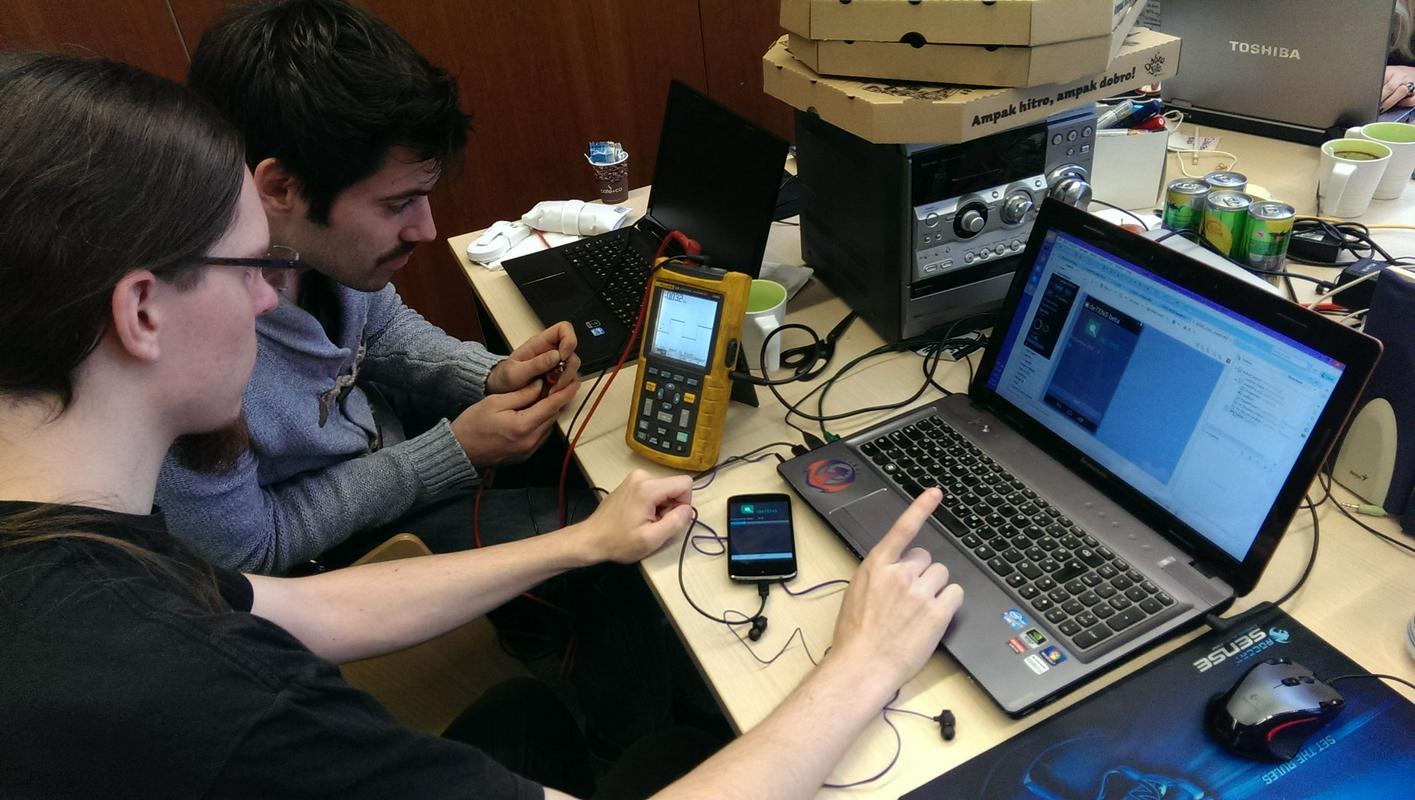
I’d had a number of ideas in the past, but when I started exploring, I found that the market didn’t need them or the thing was already on the market. I also realized there was high demand for products used in home health care as well as devices controlled via smartphones.”


In late November innovative startups competed at Startup Weekend Slovenia, an event that took place at various locations around the country. The best two companies were selected for the global competition of the most innovative companies. The team of deTENS made the finals and qualified among the top 15 teams.
What exactly did the deTENS team present at GSB?
DeTENS is an app for electrical muscle simulation via smartphones. The app is some sort of a virtual home physiotherapist. It enables electrical muscle stimulation (EMS) as well as transcutaneous electrical nerve stimulation (TENS).
TENS, Transcutaneous Electrical Nerve Stimulation, is renowned as one of the most popular methods used to eliminate or alleviate pain, both acute and chronic. By using electrodes connected to the skin above the source of pain or the nearest nerve, a TENS device produces electrical impulses of various types and applies them at various frequencies.
The electric current blocks transmission of the pain signal from the source of pain into the brain, and stimulates secretion of substances that reduce the pain.
Electrical muscle stimulation (EMS), on the other hand, is used to increase the power of individual muscles, especially in athletes and patients with weakened muscles. Electrical impulses stimulate the muscle by imitating natural muscle contraction, which is normally achieved through physical activity.
Medical devices for home use have potential
The idea of a TENS/EMS device controlled through using a smartphone app was developed by Gregor Treska, a student of electrical engineering.
“I’d had a number of ideas in the past, but when I started exploring, I found that the market didn’t need them or the thing was already on the market. I also realized there was high demand for products used in home health care as well as devices controlled via smartphones,” remembers the creative leader of the deTENS project.
“Initially I was considering making a pH metre that would measure body acidity, then a device for measuring blood pressure via a smartphone, but these products already existed. Later I came up with the idea of connecting a smartphone to an electrical stimulator, and discovered there had been no such devices on the market,” explains Treska.
The deTENS unit will comprise a module controlled through a smartphone app using wireless (Bluetooth) connection. Electrodes will be connected to the module and will perform electrical stimulation of the body part they’re attached to.
The prototype for a university competition
The product is still in its early stages, since a prototype is still being developed. The team has been contacting Slovenian experts who could contribute their knowledge and experience.
“In the field of electrical stimulation, there had been quite a lot of development in Slovenia in the past, for example at the “Jožef Stefan” Institute, at Soča [t/n: the main rehabilitation centre] etc., but the programs were slowly abandoned. We’re trying to find the experts who worked on it in the past”, says Treska.
The team plans to present the prototype – which they’re currently working very hard on – at a competition for this year’s rector’s award for best innovation. The contest is organized by the University of Ljubljana, and is aimed at supporting innovations and innovative business ideas.
I’d had a number of ideas in the past, but when I started exploring, I found that the market didn’t need them or the thing was already on the market. I also realized there was high demand for products used in home health care as well as devices controlled via smartphones.”

































































